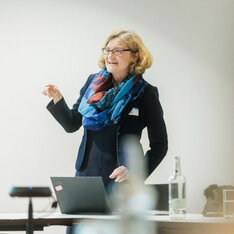
Prof. Dr. Gabi Schierning
Applied Quantum Materials
Phone: +49 203 37-98121
E-Mail: gabi.schierning@uni-due.de
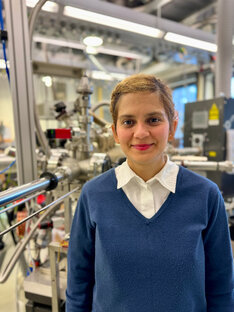
Dr. Sepideh Izadi
Applied Quantum Materials
Phone: +49 203 379 3072
E-Mail: sepideh.izadi@uni-due.de
My research focuses on (a) the electrical transport properties of topological insulator chalcogenide nanoparticle-based materials and (b) the interplay between electrical transport characteristics and catalytic activities in catalyst materials.
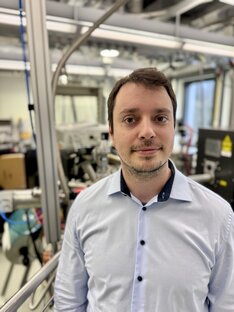
Dr. Alexander Kunzmann
Applied Quantum Materials
Phone: +49 203 379 2839
E-Mail: alexander.kunzmann@uni-due.de
Development and optimization of synthesis and crystal growth processes; electronic and structural characterization by different methods including DSC, Raman spectroscopy and electronic transport measurements.
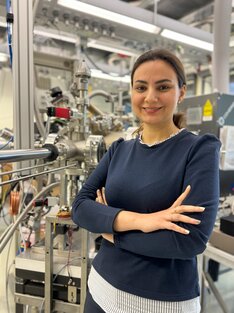
Dr. Negin Beryani-Nezafat
Applied Quantum Materials
Phone: +49 203 379 3072
E-Mail: negin.beryaninezafat@uni-due.de
I specialize in ultra-high vacuum (UHV) technology and sputtering, focusing on the deposition and characterization of thin films for device fabrication. My research also explores the micromorphology and surface transport properties of thin films, with a strong emphasis on topological insulator materials.
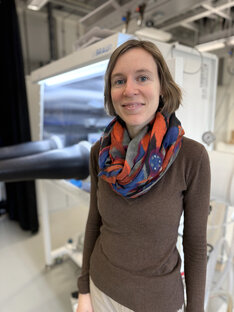
Group leader for properties and characterisation of intermetallic phases
My research focuses on martensitic transformations, specifically on the interplay of electrons and the martensitic microstructure, the dynamics of the transformation, as well as the influence of hydrogen on phase transformations.
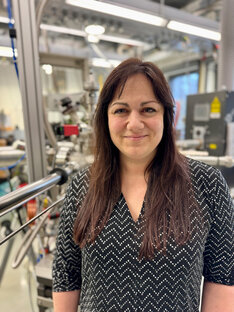
Daniela Willemsen
Applied Quantum Materials
Phone: +49 203 379 2599
E-Mail: aqm-administration@uni-due.de
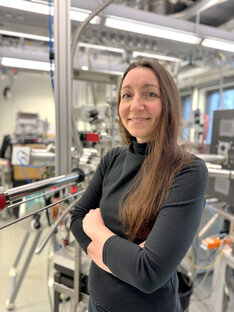
Investigation of displasive/martensitic phase transitions in different classes of materials using ab initio methods, in particular density functional theory (DFT) to study the atomic and electronic structure as well as the dynamic properties of materials during a structural transformation.
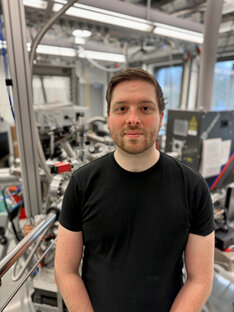
Investigating NiTiCu intermetallic phases and their martensitic transitions, focusing on electron-driven influences. Utilizing electrical transport properties to elucidate the underlying mechanisms.
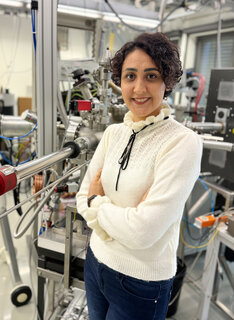
I studied materials science and metallurgy in Iran, and during my one-and-a-half-year scholarship, I have been working on the transport properties of agglomerated nanoparticles made from recycled silicon.
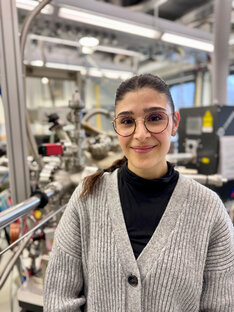
Topological insulator materials feature intrinsically protected surface transport channels that host high-mobility electrons. Notably, these properties remain robust even in rough and nanocrystalline samples, eliminating the need for perfect surfaces. This study investigates the potential suitability of topological insulators as electrode materials for hydrogen electrocatalysis, leveraging their unique quantum transport characteristics.
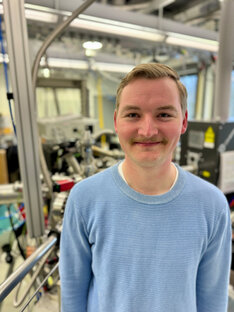
Design and implementation of crystal growth setups. Working on a floating zone furnace to establish a process for the synthesis of shape memory alloys like NiTi. Method and material are connect to a previously built micro pulling down furnace.
Research interests: Crystal growth, floating-zone & micro-pulling-down, shape memory alloys, Nickel Titanium.
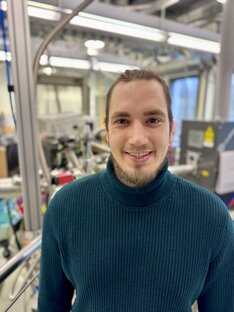
Michael Staiger
Applied Quantum Materials
Phone: +49 203 379 2836
E-Mail: michael.staiger@uni-due.de
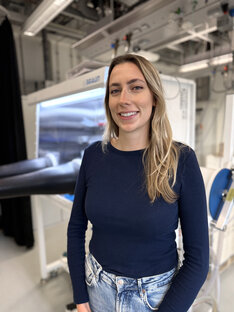
Isa Kleine-Bekel
Applied Quantum Materials
Phone: +49 203 379 1273
E-Mail: isa.kleinebekel@uni-due.de
Studying the influence of hydrogen on conduction electrons in metallurgical processes like precipitation formation and its impact on material properties while also making our research accessible through science communication and outreach production.
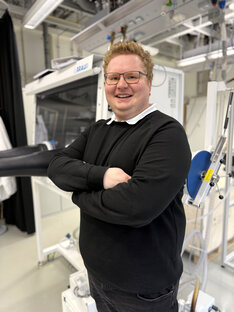
My research focuses on the interactions between free electrons and hydrogen in intermetallic compounds and alloys. I investigate how hydrogen affects the electronic structure and transport properties of these materials.